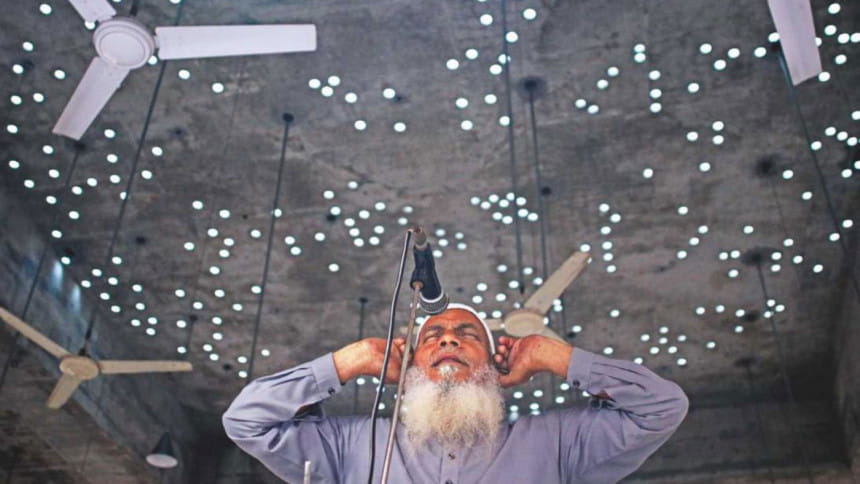How faith actors can help fight Covid-19 crisis

The catastrophic public health impact of the Covid-19 crisis has sent the world reeling, but its full ramifications have only begun to unfold. The pandemic is shaking the foundations of economic, social and cultural institutions across societies. Amidst this turmoil, the historical instances of faith actors playing a vital stabilising role during global crises offer a beacon of hope. Thus, while faith actors have not always had a positive impact, history entrusts them with a critical part in healing the world from the ravages of this pandemic. The expansive social roles of religious organisations in Bangladesh must, therefore, be recognised, integrating their wide-ranging contributions—from the material to the spiritual—into the social response to this pandemic, underscoring the profound curative power of faith in the gravest times of suffering.
The Covid-19 pandemic is having an extreme impact on lives and livelihoods in Bangladesh, threatening some of the remarkable gains made in the decades of progress towards development and social cohesion. Religion can play a crucial mitigative role at all levels of this impact, from the micro-level role of religious actors, in offering individuals spiritual and material relief, to the macro-level contributions of religious organisations, in meeting broader crisis-induced humanitarian and socioeconomic challenges. This potential has been realised in Bangladesh since the early years of the Liberation War in 1971, when the country was struck by devastating cyclones, floods, and famines. In tandem, various religious organisations have assumed longstanding roles in evacuation efforts, humanitarian aid and service delivery during crises, in addition to wider efforts towards social development, from advancing gender equality to ensuring minority rights' protection. It is thus essential to draw on the experiences and insights of the faith world in shaping the social response during and beyond the lifecycle of the Covid-19 crisis.
The lessons from the past and contemplations on the future of the pandemic can only be actionable where these are adapted to the specific nature of this crisis. It is thus important to understand that the Covid-19 crisis reintroduces old challenges in serious magnitude and also poses unique problems, which will require faith actors to reaffirm their social commitment and reorient themselves to thwart the novel threats to Bangladeshi society.
With a backdrop of a massive humanitarian crisis, the onslaught of Covid-19 brings unprecedented economic and social challenges in its wake. The crisis has already struck at the Bangladesh economy's core pillars of ready-made garments and remittances. With the spate of order cancellations from its major European and American buyers, the Bangladesh RMG sector already faces an estimated loss of USD 1.5 billion. Similarly, the loss of migrant workers' wages due to global economic slowdown will mean plummeting remittances, with dire consequences for families in rural Bangladesh which depend heavily on the remittance inflow. The overall economic impact of this crisis will not only decelerate the growth of the economy but also exacerbate poverty and social inequality, as reported by the World Economic Forum.
The marked gender dimension of the pandemic particularly exposes women and girls to risks of harm and deprivation. Entrenched gender stereotypes are likely to confine them to housework and caregiving roles and may lead to further gendered harms such as sexual exploitation, early and forced marriage and early pregnancy, both in the present and post-pandemic scenes, as Plan International and UNESCO have warned. Moreover, both Ain o Salish Kendra and Manusher Jonno Foundation have reported rising levels of domestic violence against women since the onset of the lockdown.
Tensions are also simmering within various social pockets as the crisis threatens to deepen existing fissures in our society, accentuating class and group interests and pitting sects against one another. From the propagation of incendiary views on the causes of the Covid-19 crisis to the fomenting of unrest through hatemongering, the bonds of cohesion in society are being assailed on multiple fronts.
Faith actors in Bangladesh can mitigate the devastating impact of the Covid-19 crisis on all its fronts, using both time-tested and innovative approaches. Vital religious resources are contained in the holy texts and jurisprudences of different faiths, which can both inspire and instruct adherents in times of hardship. This can ensure continued moral development and active citizenship among followers and also alert them against misguided approaches to religion which are inimical to social wellbeing.
Similarly, religious practices aimed at alleviating the sufferings of the vulnerable can be adapted to address the dire needs arising from this crisis. On the other hand, the practice of religion can be maintained despite necessary public health measures, thereby continuing to deliver spiritual and moral guidance to the adherents. This can be done through creative adaptations in practice, the aid of technology as well as the endorsement of hitherto less-practiced forms of worship that conform to health-based prescriptions.
Methods of community mobilisation and thought leadership relied on by religious leaders during past crises can be repurposed for the present times. Religious actors can work, both individually and institutionally, to tap into their extensive networks that grant them greater access to the remotest parts of the country than is often available to state and other non-state actors. Similarly, as faith leaders are highly revered within their communities, their efforts towards maintaining public health standards and fostering social cohesion are likely to be efficacious.
Established partnerships can be reenergised, and new ones forged, to deliver stronger and broader responses against the crisis. An interfaith dimension to collaborations between religious organisations can greatly enhance social cohesion, and partnering with non-religious entities will also be highly beneficial. Religious actors' association with state organs offers important advantages in terms of resources and security, while state organs can benefit from expanded access and increased legitimacy vis-à-vis religious constituencies. Religious organisations' engagement with their non-religious counterparts can also create larger resource pools for building more robust responses and establish a mutual support system in terms of distinct expertises and unique pathways of access. It is thus essential to draw on the experiences, insights, and vast capacity of the faith world in facing this pandemic and looking to the future.
The key social role of religious organisations is affirmed by the work undertaken through research collaboration between the Centre for Peace and Justice, Brac University, and the World Faiths Development Dialogue, Georgetown University, USA—which explores the faith dimensions of development and social cohesion in Bangladesh. The research identifies productive interactions between the faith world and the development sector and lays important stepping stones to recognising the expansive roles of religious organisations in Bangladeshi society. Such work now takes on renewed urgency and greater significance, as the existing and emerging dimensions of this pandemic reveal the importance of including faith actors in charting the course through this turbulent time and reaching safe harbour in the post-Covid-19 world.
Aisha Binte Abdur Rob is a Research Associate at the Centre for Peace and Justice, Brac University. The views expressed in this article are those of the author and do not necessarily reflect the positions of Brac University or the World Faiths Development Dialogue (Georgetown University).

 For all latest news, follow The Daily Star's Google News channel.
For all latest news, follow The Daily Star's Google News channel. 



Comments